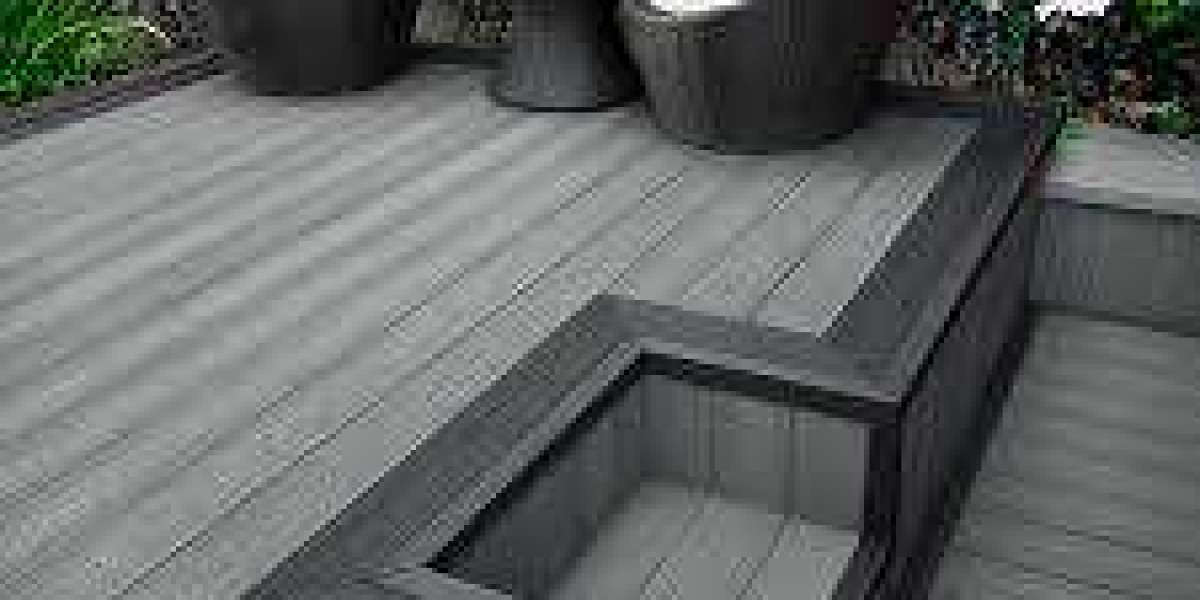If you’re planning to upgrade your outdoor space, you’ve likely come across modern composite decking as a popular alternative to traditional wood. With its sleek appearance, low-maintenance reputation, and long lifespan, composite decking is gaining attention from homeowners who want a hassle-free solution for their patios, terraces, and backyard decks. But is it really worth the investment?
In this article, we’ll break down the pros and cons, real-life performance, cost comparisons, and key insights every homeowner should consider before choosing composite decking for their outdoor project.
What Is Composite Decking?
Composite decking is a man-made building material made from a blend of wood fibers, plastics, and bonding agents. These materials are combined and processed into boards that resemble natural wood, but with enhanced durability and minimal upkeep.
There are two main types:
Capped Composite: Features a protective polymer shell for added resistance to stains and moisture.
Uncapped Composite: More affordable but less protected from environmental damage.
Pros of Composite Decking
1. Low Maintenance
One of the biggest advantages of composite decking is that it doesn’t need to be sanded, stained, or sealed. A simple wash with soap and water is enough to keep it looking new.
2. Weather & Fade Resistance
Composite materials resist fading from UV rays, warping from moisture, and splitting from temperature fluctuations—making them ideal for all climates.
3. Long Lifespan
High-quality composite decking can last 25–30 years or more, far outlasting many types of natural wood decking.
4. Eco-Friendly
Many brands use recycled wood and plastic, making composite decking a sustainable choice for environmentally conscious homeowners.
5. Aesthetic Variety
Available in a wide range of colors, textures, and finishes, composite decking allows for customization that matches modern and traditional outdoor spaces.
Cons of Composite Decking
1. Higher Upfront Cost
The initial cost of composite decking is typically higher than traditional wood. However, the reduced maintenance and longer lifespan often make it more economical in the long run.
2. Heat Retention
In hot climates, some composite boards can become warmer underfoot compared to natural wood.
3. Not 100% Natural
If you love the authentic look and feel of real wood, composite decking may appear slightly artificial—though many premium products come close to mimicking natural grain.
Is Composite Decking Worth It Financially?
Let’s break down a simple cost comparison:
| Material | Initial Cost per Sq. Ft. | Maintenance Cost (10 years) | Total Cost Over 10 Years |
|---|---|---|---|
| Wood (e.g., Cedar) | $3–$7 | $1,500–$3,000 (sealing/staining) | $5,000–$8,000 |
| Composite Decking | $6–$12 | ~$0 | $6,000–$12,000 |
While wood appears cheaper upfront, regular maintenance adds up. Composite decking offers better value long-term, especially for those who don’t want to invest time or money into upkeep.
Tips for Choosing the Right Composite Decking
Check the Warranty – Reputable brands offer warranties of 25 years or more.
Compare Core Types – Solid-core boards are heavier and stronger; hollow-core options are lighter and more affordable.
Pick the Right Finish – Choose a texture that provides slip resistance, especially in rainy or poolside areas.
Look for Recycled Content – For eco-conscious builds, choose brands with high recycled material content.
Read Reviews – Consumer experiences can reveal long-term performance beyond what the specs say.
Real-Life Uses: Where Composite Decking Shines
Rooftop Terraces: Lightweight composite materials are ideal for rooftops where moisture resistance and minimal upkeep are critical.
Pool Decks: Slip-resistant and water-resistant surfaces make it a safe and durable choice.
Outdoor Kitchens & Entertaining Spaces: Composite boards don’t stain easily, making them ideal for food and drink areas.
Conclusion
So, is composite decking worth it? For many homeowners, the answer is yes. With its long lifespan, minimal maintenance, and sleek appearance, composite decking is a smart investment that pays off in comfort, aesthetics, and long-term value.
If you’re tired of sanding, staining, and replacing warped wood boards, it may be time to consider switching to this versatile and modern solution. Just make sure to choose a reputable brand, compare product lines, and match your selection to your climate and lifestyle needs.








